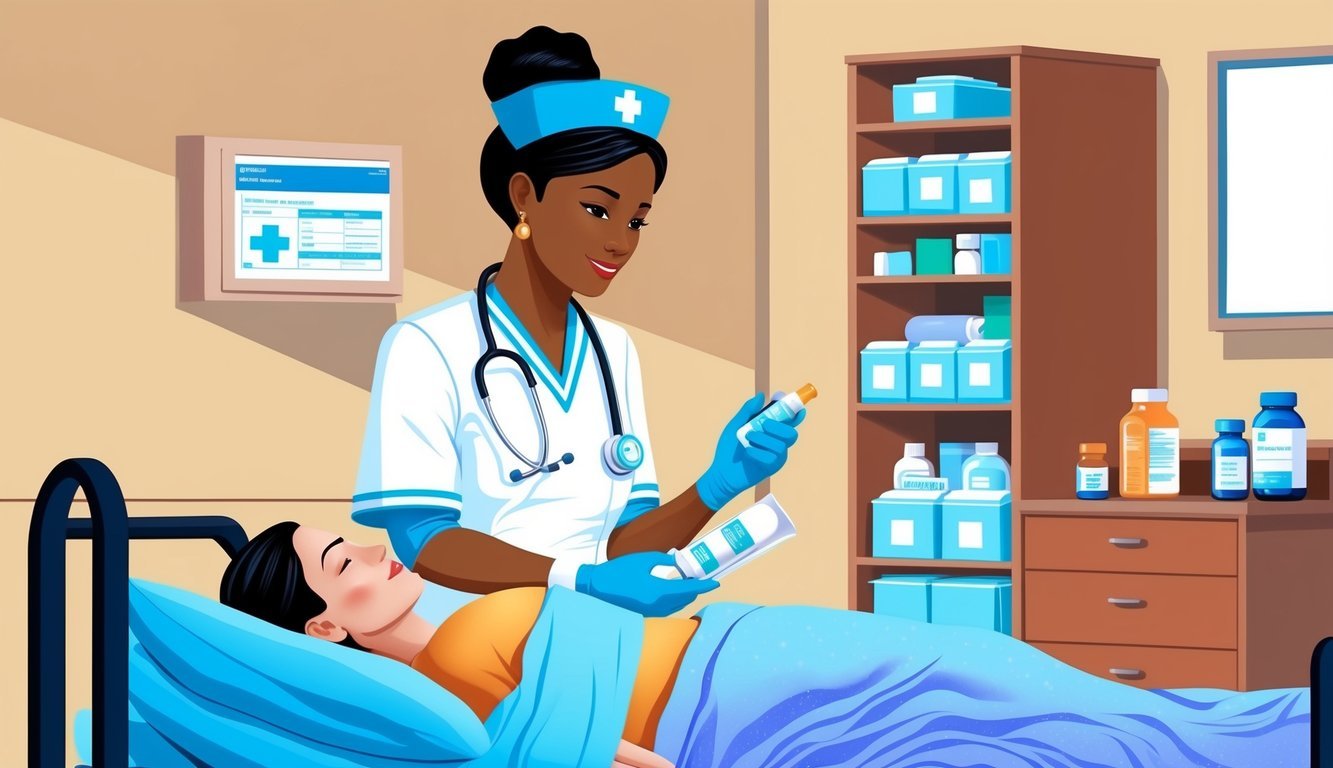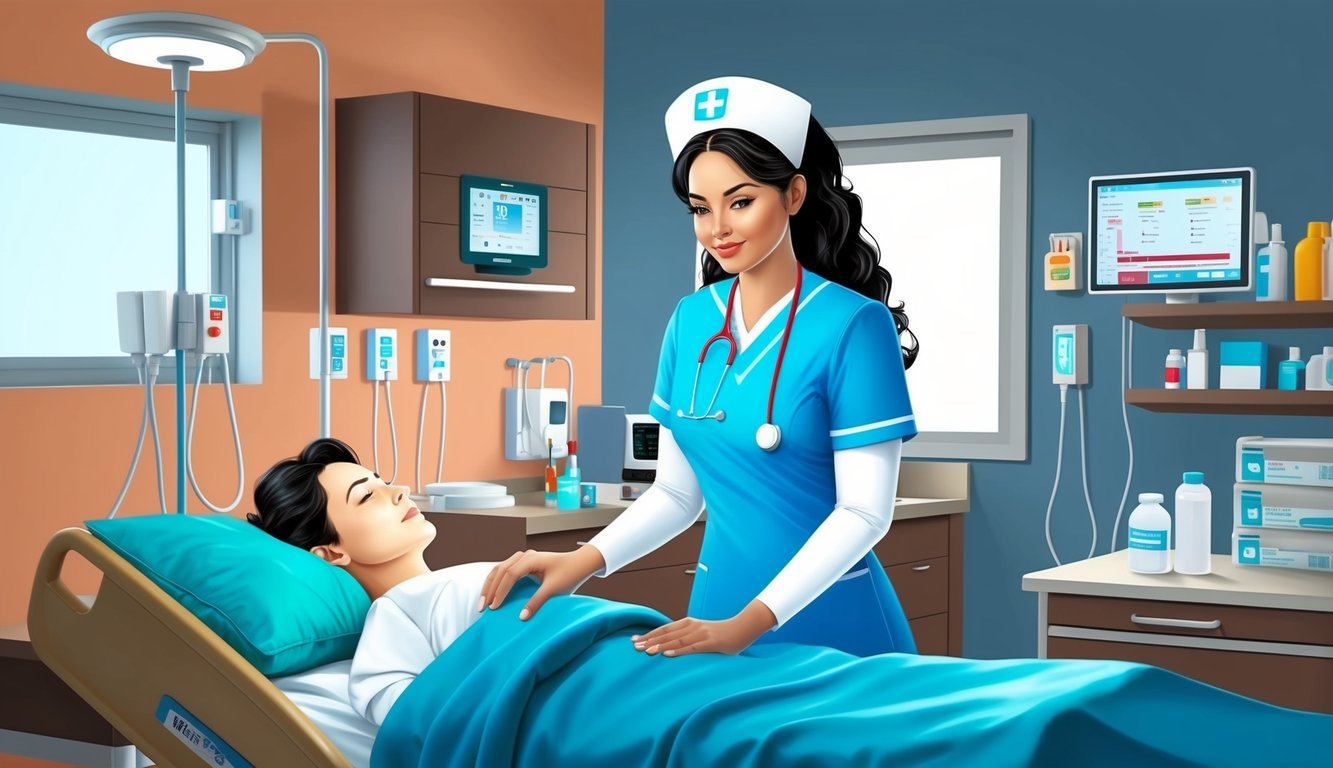Registered nurses (RNs) play a vital role in the healthcare system, acting as the backbone of patient care. RNs assess patients’ conditions, administer medication, collaborate with doctors, and educate patients about their health.
They work in various settings, including hospitals, clinics, and even private homes, providing a broad range of services that are crucial for your well-being.
Daily responsibilities may include monitoring vital signs, conducting physical exams, and managing treatment plans tailored to individual needs.
Additionally, RNs often serve as advocates for patients, ensuring they receive the best possible care while fostering communication between patients and other members of the healthcare team.
If you’re interested in understanding more about the dynamic roles RNs fill in the nursing profession, the insights are extensive.
As you explore this article, you’ll discover the diverse pathways to becoming a registered nurse and the skills required to excel in this rewarding field.
Understanding what RNs do not only highlights their importance but also sheds light on the broader impacts they have on healthcare and communities.
Pathways to Nursing
Understanding the pathways to nursing involves exploring the essential educational routes, licensure requirements, and opportunities for advanced practice.
Each of these elements plays a critical role in shaping your nursing career.
Nursing Education
To become a registered nurse (RN), you typically need to complete a nursing program that leads to either an Associate Degree in Nursing (ADN) or a Bachelor of Science in Nursing (BSN).
ADN programs usually take about two years and offer a foundation in nursing skills and patient care.
These are available at community colleges and require clinical experience.
BSN programs, on the other hand, often take four years and include additional training in areas like leadership and research.
Many hospitals prefer RNs with a BSN due to the comprehensive education provided.
You can also pursue RN-to-BSN programs if you already hold an ADN and wish to advance your education and job prospects.
Licensure and Certifications
After completing your nursing education, obtaining a nursing license is a crucial step.
You must pass the National Council Licensure Examination (NCLEX-RN) to become licensed as an RN.
This exam evaluates your knowledge and skills in various nursing areas.
A successful assessment allows you to practice legally as a registered nurse in your state.
In addition to the NCLEX-RN, you may consider obtaining specialty certifications in areas such as critical care or pediatrics.
These certifications can enhance your expertise and may improve your job opportunities.
Advanced Practice Nursing
For those aspiring to pursue higher-level positions, becoming a Nurse Practitioner (NP) is an option.
This requires additional education, typically in the form of a Master of Science in Nursing (MSN) or Doctor of Nursing Practice (DNP).
Nurse Practitioners provide advanced care, including diagnosing and treating illnesses.
They often work independently or in collaboration with physicians, and they have the authority to prescribe medications in most states.
Advanced practice roles require rigorous training and often certification exams; thus, they can lead to greater responsibilities and higher salaries in the nursing profession.
Roles and Responsibilities
Registered nurses (RNs) perform a wide variety of essential duties that ensure high-quality patient care.
Their roles encompass direct patient management, specialized care fields, and effective leadership.
Each of these areas contributes significantly to positive patient outcomes and overall healthcare efficacy.
Patient Care and Management
As a registered nurse, you will be responsible for comprehensive patient care.
This includes assessing vital signs, conducting physical exams, and monitoring patients’ conditions in various settings such as hospitals or nursing care facilities.
You develop and execute nursing care plans tailored to meet individual patient needs.
Documentation is crucial in maintaining patient records and tracking progress.
You will also be involved in administering medications and using medical equipment effectively.
These tasks ensure that patients receive appropriate treatment based on their diagnoses, directly influencing outcomes.
Specialized Nursing Fields
You may choose to work in specialized fields such as pediatrics, geriatrics, or emergency care.
Each specialty has unique requirements and allows you to apply targeted knowledge and skills.
For instance, in home healthcare, you provide care in patients’ residences, requiring strong adaptability and independence.
You will also encounter varying complexities in different specialties.
This may range from direct interventions during emergencies to providing ongoing management and education for chronic conditions, highlighting the diverse nature of nursing roles.
Communication and Leadership
Effective communication is essential in your role as an RN.
You must collaborate with healthcare teams and convey vital information to patients and their families.
Clear communication improves understanding and compliance with treatment plans, ultimately enhancing patient outcomes.
In leadership capacities, you may supervise junior staff or coordinate with interdisciplinary teams.
This role often involves mentoring, guiding clinical practices, and advocating for your patients’ needs.
Strong leadership directly contributes to the cohesive functioning of your healthcare environment.
For further insights into registered nursing, consider reading more about registered nurse responsibilities.
Work Environment and Daily Activities

Registered nurses work in diverse settings, each offering unique challenges and responsibilities.
Understanding these environments and typical daily activities is crucial for grasping the essential functions of nursing.
Healthcare Settings
Registered nurses operate in a variety of healthcare environments.
Key settings include:
- Hospitals: Most RNs work in hospitals, where they provide critical care and execute treatment plans. They frequently interact with multiple patients, balancing care throughout shifts.
- Nursing Homes: Here, nurses tend to elderly patients, focusing on long-term care. Duties often include medication administration and monitoring the overall health of residents.
- Emergency Rooms: In emergency departments, RNs respond to urgent health crises, requiring quick assessments and treatments.
- Public Health: Nurses in public health emphasize disease prevention and education within communities, sometimes conducting health screenings and vaccination programs.
Different settings require tailored approaches to patient care, influenced by patient demographics and healthcare system needs.
Typical Nursing Tasks
Your day as a registered nurse includes various tasks aimed at providing quality care.
Important daily activities involve:
- Patient Assessments: You perform routine head-to-toe evaluations and monitor vital signs to identify any health changes.
- Care Plans: Developing and implementing comprehensive care plans is crucial to address individual patient needs.
- Medication Administration: RNs are responsible for administering prescribed medications, educating patients about their usage and potential side effects.
- Documentation: Accurate medical documentation is vital. You maintain detailed records of patient progress and care provided.
- Collaboration: Working closely with doctors, therapists, and other healthcare professionals ensures coordinated and effective patient care.
Each task you perform contributes significantly to promoting patient well-being and recovery.
For more on the day-to-day responsibilities of a nurse, you can visit Nurse.com.
Advances in Nursing

The nursing profession has seen significant advancements in recent years, greatly enhancing patient care and health outcomes.
These changes include the integration of technology into healthcare and the emphasis on continuing education and specialization.
Technology and Healthcare Innovation
Technology plays a pivotal role in modern nursing practice.
Electronic health records (EHRs) streamline the documentation process, enabling you to access patient information swiftly and accurately.
This helps in developing comprehensive care plans based on the nursing process and improves coordination among healthcare providers.
Telehealth services allow you to reach patients in remote areas, making health promotion and education more accessible.
Additionally, innovations in medical devices enhance pain management and infection control, providing real-time monitoring and immediate interventions when necessary.
You can leverage decision-support systems that analyze data to inform health policy decisions, ensuring that your clinical practice is both evidence-based and patient-centered.
Continuing Education and Specialization
Continuing education is crucial for maintaining competency in nursing.
Pursuing additional certifications in specialized areas, such as pediatrics, geriatrics, or mental health nursing, enables you to adapt to evolving patient needs and healthcare environments.
Specialization allows you to focus on specific health issues, improving your ability to manage complex conditions and enhancing patient satisfaction.
Many institutions offer programs that align with current healthcare trends, ensuring that you are prepared for challenges such as chronic disease management or advanced infection control strategies.
By engaging in lifelong learning, you can contribute to the advancement of nursing as a profession while also improving the quality of care you provide to your patients.
Career Outlook
The demand for registered nurses remains strong, with various opportunities for career growth and advancement.
The job market is expanding, driven by the ongoing need for healthcare services across various settings.
Job Market and Opportunities
The job outlook for registered nurses (RNs) is promising, with an expected job growth of 6% from 2023 to 2033, according to the U.S. Bureau of Labor Statistics.
This growth is faster than many other occupations.
You can work in diverse environments, including hospitals, clinics, and home health care settings.
Registered nurses have numerous paths to specialize, such as becoming advanced practice registered nurses (APRNs), nurse practitioners, or certified registered nurse anesthetists.
Specialties in pediatrics or the neonatal intensive care unit can be particularly rewarding.
Educational credentials significantly impact job opportunities.
RNs can advance by earning a Bachelor’s Degree in Nursing, Master of Science in Nursing, or pursuing certifications in specialized areas.
The demand for skilled healthcare providers continues to rise alongside advancements in medical technologies.
Career Development and Advancement
Nursing offers extensive avenues for growth.
You can enhance your skills through various nursing programs or certifications, such as those for clinical nurse specialists or nurse midwives.
Many RNs begin with an Associate’s Degree in Nursing and transition to a bachelor’s program to improve job security and potential salaries.
Nursing roles often require critical thinking and a commitment to patient care, making ongoing education essential.
Advancements in nursing can lead to roles in management, education, or specialized clinical positions.
The field encourages lifelong learning, with many professionals pursuing advanced degrees to increase their expertise.
Engaging in continuing education can make you more competitive in the evolving healthcare landscape.

